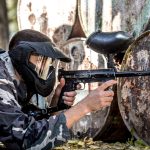Scientifically Proven Techniques to Maintain Focus During Lengthy Karate Competitions
Lengthy karate competitions demand exceptional mental clarity in sports due to extended periods of high cognitive load and physical exertion. The ability to sustain attention is crucial for scoring points and responding swiftly. Evidence-based focus methods for karate athletes emphasize exercises that sharpen sustained attention and reduce mental fatigue.
Research highlights the effectiveness of specific mental clarity in sports techniques, including cognitive drills that simulate competition stress, enhancing concentration endurance. For example, focusing on a repetitive task for set intervals can train the brain to maintain alertness despite fatigue.
This might interest you : Enhance your wrestling game: key scrambling techniques for uk athletes to improve performance
Practical competition concentration strategies involve controlled breathing and mindfulness exercises. Deep diaphragmatic breathing, performed for a few minutes between bouts, activates the parasympathetic nervous system, calming nerves and improving oxygen flow to the brain. Mindfulness meditation, even brief sessions, helps karate practitioners observe their mental state and refocus on the present moment, minimizing distractions in dynamic tournament environments.
Additionally, integrating these scientifically backed methods into daily training can build a resilient mental foundation, enabling karate competitors to navigate the demanding cognitive challenges of lengthy competitions while sustaining peak focus essential for success.
In parallel : Top uk boxing tips: master weight management for training camp success
Nutrition and Hydration Strategies for Peak Mental Performance
Optimal nutrition for concentration is essential before and during lengthy karate competitions. Consuming balanced pre-competition meals rich in complex carbohydrates, lean proteins, and healthy fats supports sustained energy release. For example, oatmeal with nuts and berries or wholegrain sandwiches with turkey provide glucose essential for brain function, helping maintain mental clarity in sports. In contrast, high-sugar or heavily processed snacks cause rapid energy spikes followed by crashes, impairing focus.
Hydration plays a critical role in preserving hydration for mental clarity. Even mild dehydration can reduce attention span and cognitive performance. Karate athletes should follow hydration protocols tailored for extended events, such as drinking water consistently before and between bouts, complemented by electrolyte-enhanced fluids to replace salts lost through sweating. Limiting caffeine intake is advisable, as it may induce jitters or dehydration.
In UK competitions with variable indoor climates and long waiting periods, athletes benefit from a flexible karate competition diet plan that includes accessible, portable snacks like nuts, fruit, or energy bars. Maintaining both nutrition and hydration ensures the brain receives the fuel it needs for optimal mental clarity in sports, supporting peak focus throughout the event.
Scientifically Proven Techniques to Maintain Focus During Lengthy Karate Competitions
Sustaining mental clarity in sports during extended karate competitions requires mastering evidence-based focus methods that enhance cognitive endurance. Research identifies mental exercises that improve sustained attention by challenging the brain to stay alert under stress. For example, repetitive cognitive drills—such as focusing on a single stimulus or task for timed intervals—train the mind to resist distraction and postpones fatigue.
Competition concentration strategies also involve controlled breathing techniques. Diaphragmatic breathing slows the heart rate, activates the parasympathetic nervous system, and increases oxygen flow to the brain, which together enhance focus. Practicing deep, rhythmic breaths during rest periods between matches helps reset mental alertness quickly and reliably.
Mindfulness practices further support maintaining concentration. Short meditation sessions encourage athletes to observe their thoughts nonjudgmentally and return focus to the present moment. This mental reset reduces the impact of stress and anxiety on performance, sustaining mental clarity in sports throughout multiple bouts.
Consistently integrating these scientific techniques into daily training routines builds resilience, enabling karate practitioners to face the intense cognitive demands of lengthy tournaments with greater ease and sustain concentration when it matters most.
Scientifically Proven Techniques to Maintain Focus During Lengthy Karate Competitions
Lengthy karate competitions demand exceptional mental clarity in sports, as athletes face prolonged cognitive strain combined with physical exertion. Cognitive research emphasizes that sustained attention, the ability to maintain focus over time, is vital for performance in such settings.
One key set of evidence-based focus methods involves targeted mental exercises. These include repetitive attention drills where practitioners concentrate on specific stimuli or tasks for timed intervals. Such training helps the brain adapt to extending concentration, reducing vulnerability to distraction and mental fatigue during tournaments. For instance, focusing intently on a single kata sequence repeatedly can enhance the brain’s ability to sustain attention over extended bouts.
Competition concentration strategies also highlight practical breathing techniques. Diaphragmatic breathing, involving slow, deep breaths, triggers the parasympathetic nervous system, which lowers heart rate and increases oxygen delivery to the brain. This physiological response elevates alertness and resets focus, especially useful during rest periods between matches.
Mindfulness meditation complements these methods by training athletes to nonjudgmentally recognize distractions and gently redirect focus to the present moment. Regular integration of these scientifically validated approaches into training bolsters mental stamina. Consequently, karate competitors become better equipped to maintain mental clarity in sports throughout the challenges of lengthy competitions.
Scientifically Proven Techniques to Maintain Focus During Lengthy Karate Competitions
Lengthy karate tournaments require unwavering mental clarity in sports due to sustained cognitive and physical demands. Maintaining focus over many bouts challenges even experienced athletes, making evidence-based focus methods essential.
Cognitive science supports mental exercises that enhance sustained attention. For example, repetitive tasks requiring deliberate concentration—like focusing on breathing rhythm or visualizing precise movements—train the brain to resist fatigue and distractions. These exercises improve neural pathways responsible for attention, directly boosting performance during competition.
Competition concentration strategies also rely heavily on controlled breathing. Diaphragmatic breathing, performed slowly and deeply, activates the parasympathetic nervous system, reducing stress hormones and increasing oxygen flow to the brain. This physiological response fosters better focus between bouts.
Mindfulness techniques complement breathing by teaching athletes to observe anxiety or wandering thoughts without judgment, then gently return focus to the present moment. Combined, these scientifically validated practices help karate athletes build mental endurance, sustain mental clarity in sports, and manage stress effectively during long tournaments. Regular training in these methods creates a cognitive resilience crucial for peak focus when competition intensity peaks.




